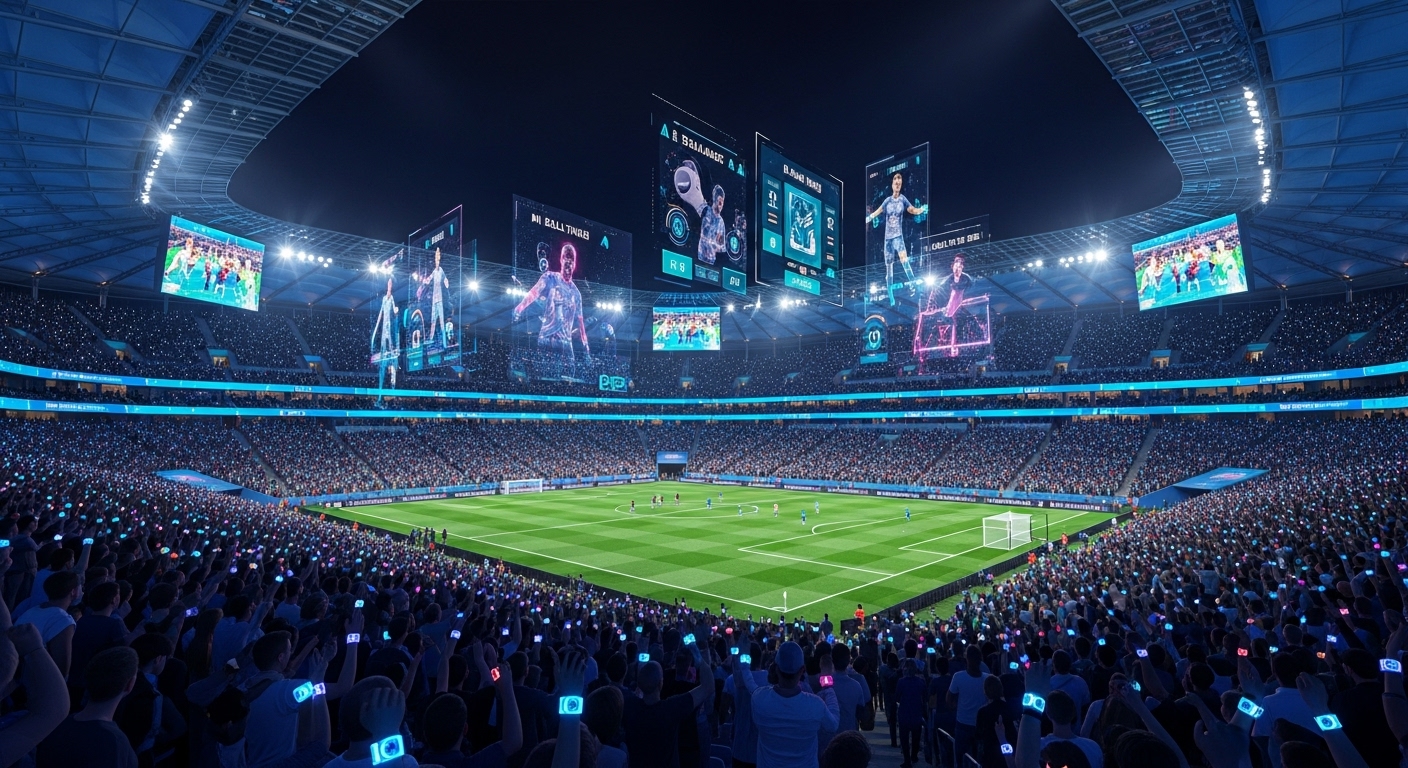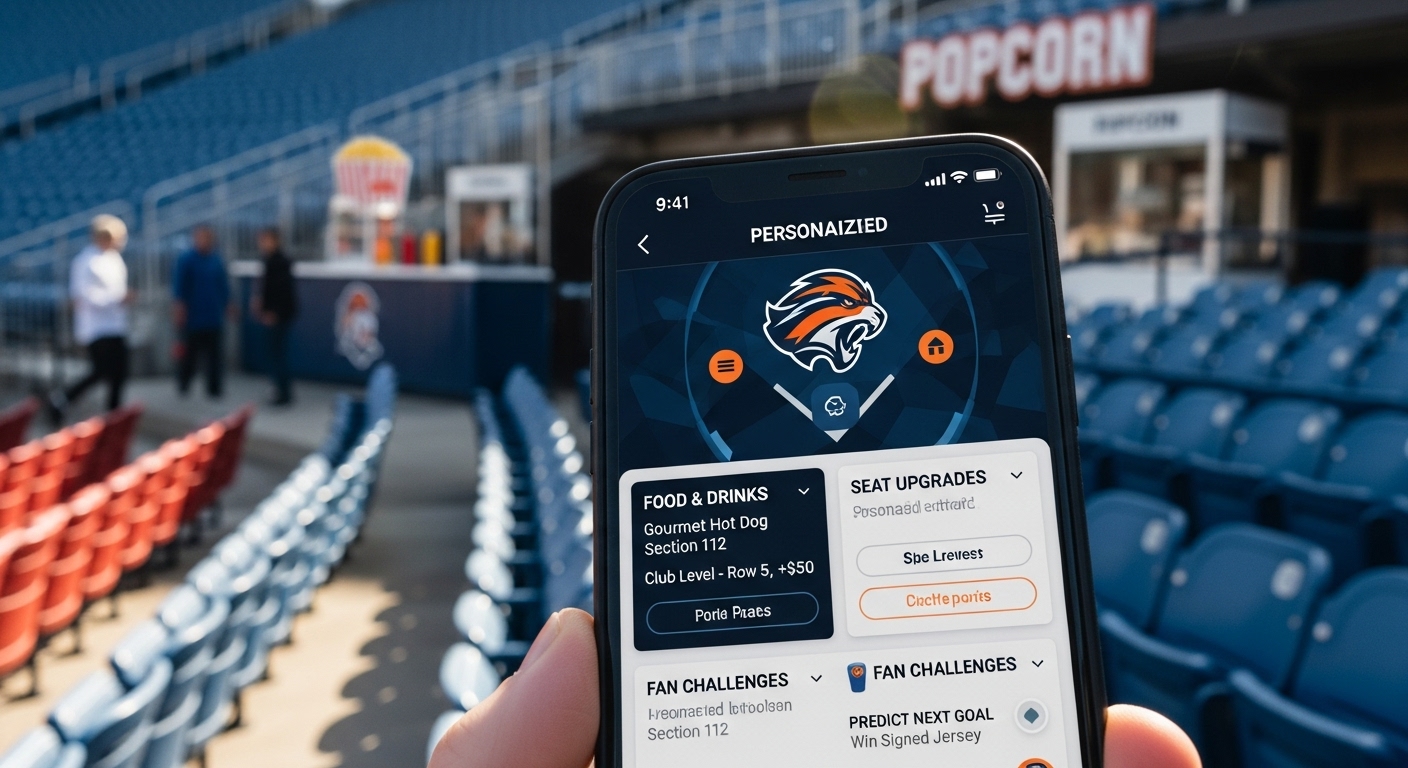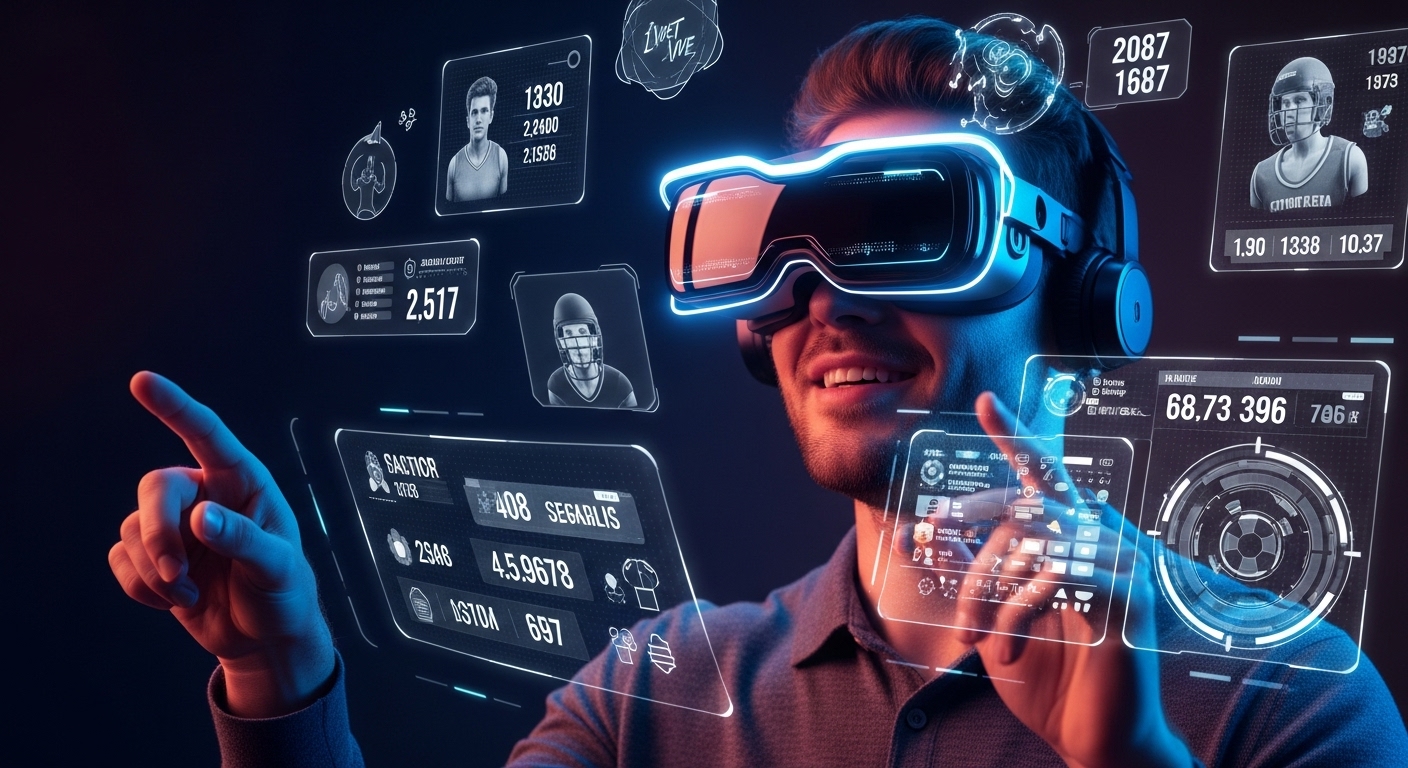
In today’s world, watching sports is about much more than simply seeing who wins or loses. Whether you’re in the stadium or sitting at home, artificial intelligence (AI) is transforming how fans connect, engage, and enjoy their favorite teams. The fan experience has evolved from a one size fits all approach to something dynamic, personal, and interactive. For clubs, leagues, and brands, this means new opportunities to understand fans on a deeper level. For fans, it means experiences that feel tailor-made.
Personalised Content: The Game Is About You
AI in sports is changing how stories are told. Fans no longer just receive the same broadcast or social post as everyone else they get content built around their interests. Algorithms can analyze your viewing habits, favorite teams, and players, then recommend highlights, stats, and articles that match your preferences.
For example, streaming platforms like DAZN and ESPN+ use AI-powered recommendation systems to suggest clips and replays that match each viewer’s tastes. If you’re a basketball fan who follows a particular player, AI can instantly compile a highlight reel of that player’s top moments after every game. Behind the scenes, metadata and automated tagging help broadcasters make this possible by labeling every play, goal, or reaction so it’s easier to find and share.
Teams and leagues also use AI to deliver more relevant experiences. Through apps and chatbots, they can send notifications about upcoming matches, personalized merchandise offers, or even trivia challenges based on what fans love most. For marketers, this data-driven approach means campaigns that are not only more effective but also more authentic, since they align with real fan behavior rather than assumptions.
The result? Fans feel seen, not sold to. They receive updates that reflect their true interests and engagement deepens naturally.

Smart Stadiums: Where Technology Meets Atmosphere
Being at a live game is thrilling the noise, the crowd, the energy. But AI is making that experience smoother, smarter, and more connected. The rise of the smart stadium is one of the most exciting developments in sports technology.
AI now helps stadiums manage everything from crowd flow to concession lines. Sensors and cameras track real-time movement, allowing operators to reduce congestion or redirect fans to less crowded areas. Some venues use AI-driven navigation apps that guide fans to their seats, show the shortest route to restrooms, or notify them when a food stand has shorter lines.
In certain stadiums, virtual assistants and chatbots provide live support, answering questions about gate entry, merchandise, or game updates. AI can even power personalized offers for example, recommending a beverage stand based on a fan’s purchase history.
At major venues like SoFi Stadium in Los Angeles and Tottenham Hotspur Stadium in London, AI systems help manage security, optimize energy use, and deliver targeted promotions on screens and mobile apps. This doesn’t just improve convenience it transforms the game-day experience into something interactive, safe, and enjoyable.
For sports organizations, the takeaway is clear: investing in AI infrastructure pays off. Fans spend less time waiting and more time cheering, which boosts satisfaction and revenue.
Streaming and the Remote Experience: Smarter Screens, Deeper Connections
Most fans experience sports through a screen, and AI is reinventing what that looks like. Modern streaming platforms rely on AI for real-time analytics and personalized viewing experiences. Instead of watching a generic broadcast, fans can choose alternative camera angles, track player stats as they happen, or even get AI-generated commentary tailored to their interests.
AI also speeds up content creation. Systems automatically identify key moments goals, saves, dunks, or celebrations and produce instant highlight reels within minutes of the play. This is crucial in today’s fast paced social media environment, where attention spans are short and fans expect immediate updates.
For instance, during the FIFA World Cup, AI helped broadcasters deliver custom clips for each region and audience segment. Similarly, Formula 1 uses machine learning to generate live performance insights, offering fans an in-depth look at driver strategies and car telemetry.
What does this mean for viewers? It’s about control. Fans decide how they want to experience the game whether through data overlays, second-screen interactions, or curated content packages. The result is a richer, more engaging, and more personalized remote experience.
The Power of Real-Time Data and Analytics
Behind every AI-driven experience lies one crucial ingredient: data. Without accurate and timely data, personalization and automation wouldn’t be possible. Sports organizations now rely heavily on real time analytics to understand fan behavior, predict demand, and optimize engagement.
AI analyzes patterns such as how long fans stay in stadiums, what content they interact with on apps, or what merchandise they buy. This information helps teams design smarter marketing campaigns and enhance operational efficiency. For example, if AI detects a surge in ticket interest for a particular player’s comeback game, it can automatically adjust promotions or staffing levels to meet demand.
Real-time analytics also improve safety and logistics. Stadiums can detect overcrowding or equipment issues before they become problems. Streaming platforms use analytics to maintain quality and avoid lags during high-traffic moments.
However, this level of insight raises questions about privacy. The best organizations strike a balance: using data to enhance the fan experience while maintaining transparency and trust. Fans are increasingly aware of how their information is used and expect ethical handling in return for better experiences.
The Future of Fan Engagement: What’s Coming Next
The next five years will bring even more exciting developments in AI in sports and innovation in fan engagement. Here’s what’s on the horizon:
Generative AI will allow leagues and broadcasters to produce custom highlight videos or commentary in seconds, potentially with your favorite commentator’s voice tailored to your preferences. Augmented reality (AR) and virtual reality (VR) will bring fans closer to the action, letting them experience games from virtual seats or see player stats appear over live footage.
AI will also deepen community engagement. Imagine virtual fan zones where supporters from around the world can meet in real time, powered by AI translation and emotion recognition. For smaller leagues and amateur sports, affordable AI tools will help them deliver big-league experiences from automated camera systems to digital fan engagement apps.
At the same time, organizations will need to prioritize transparency and data ethics. As personalization grows, so will the responsibility to protect fan data and explain how algorithms work. The future of fan engagement isn’t just about smarter tech it’s about smarter trust.

Conclusion: The Fans Take the Lead
AI is rewriting the rules of sports fandom. From hyper-personalized content and smarter stadiums to real-time analytics and immersive streaming, technology is transforming how we connect with the games we love. For organizations, the challenge is to keep the human touch to use AI not as a replacement for passion, but as an amplifier of it.
The best fan experiences will be those that combine data with emotion, insight with excitement. As AI continues to evolve, fans won’t just be spectators they’ll be active participants in a living, intelligent sports ecosystem that knows and grows with them.
FAQ | Fan Experiences
What does AI really do for sports fans?
AI makes the experience more personalized and efficient from recommending content to improving stadium logistics. It tailors how fans watch, interact, and enjoy sports both online and in person.
How does it personalize my experience?
By analyzing your preferences favorite teams, players, and content types AI recommends highlights, updates, and offers that match what you care about most.
How is AI used inside stadiums?
AI manages crowd flow, helps with navigation, personalizes offers for food and merchandise, and powers chatbots for real-time assistance.
What’s coming next in AI and sports?
Expect more immersive experiences from AI-generated highlights and custom commentary to virtual reality fan zones and smarter, fully connected stadiums.

.png)

.png)
.png)
.png)
